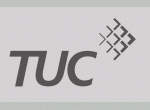According to the TUC, the Swedish Derogation is: “an option written into the EU Temporary Agency Work Directive that allows member States to insert a provision into their transposing legislation that says that where an agency worker is directly employed by an agency they are not protected by the equal treatment provisions in the Directive. The UK Regulations, which come into force in October, make use of the “Swedish” derogation.
An Example
To illustrate the effect by example, Jo has been signed up to the Slog Agency and they place her with various local companies where she works as a temporary receptionist. From October, when the Agency Work Regulations come into force, the companies where she goes to work would be obliged to give her the same rates of pay as their permanent receptionists after she has been there for 12 weeks. However, using the “Swedish” derogation, Slog takes her onto their books as an employee. In other words she has become an employee of Slog with a contract of employment – she is no longer an agency worker strictly speaking, even though she works for an agency. Slog is now solely responsible for paying her, setting her working hours and so on.
Although this gives Jo the basic employment protection to which employees (as opposed to agency workers) are entitled – for example better maternity rights, the right to claim unfair dismissal (after a year – soon going up to two years if the Government gets its way) and so on, it means that when Slog sends her to an assignment with another company she can legally be paid less than someone directly employed by the that company, thus potentially undercutting agreed rates of pay in that workplace.
The other problem with the “Swedish” derogation is that the UK regulations have stretched the provisions of the Directive to the extent that an agency can employ an agency worker and only give them a minimal amount of paid work for a week, but because they are an employee of the agency they have to be available to take work when it comes in. This means that they could end up earning very little in a bad week”.
Implications for RMT members
In relation to the implications for RMT members, the example provided by Hull branch which relates to Northern Rail’s use of trainpeople.co.uk fits perfectly:
Hull Rail Branch is disgusted that Northern Rail are using Trainpeople.co.uk and following the Swedish Derogation model to employ 35 Agency staff in the Yorkshire area as Revenue Protection. It has been reported that the following is taking place during training (by someone on the training course).
The Managing Director advised that he would not be paying the minimum wage during the two weeks of training but would be paid £100 per week in this period. He also stated that he intended to keep them beyond the 13 week period (after this agency staff should be paid the same wage as other Northern Trains staff doing the same job) at the rate of pay of £6.50 per hour.
Whilst the Swedish derogation does not relate to payment during training, it does mean that where it was hoped the Agency Workers Regulations would guarantee that the agency staff would be entitled to equal pay with workers doing the same job after 12 weeks, then with the Swedish derogation that is no longer the case and agreed rates of pay in that workplace have been undercut. The Swedish Derogation destroys any potential the Agency Workers Regulations might have had to protect agency workers, and prevent their use in undermining terms and conditions.
In terms of the pay protection the derogation offers to agency workers the contractor must be paid up to 50% of their highest-earning weekly salary or national minimum wage, depending on which ones of higher value, for up to four weeks after the assignment finishes.
- 3963 reads






